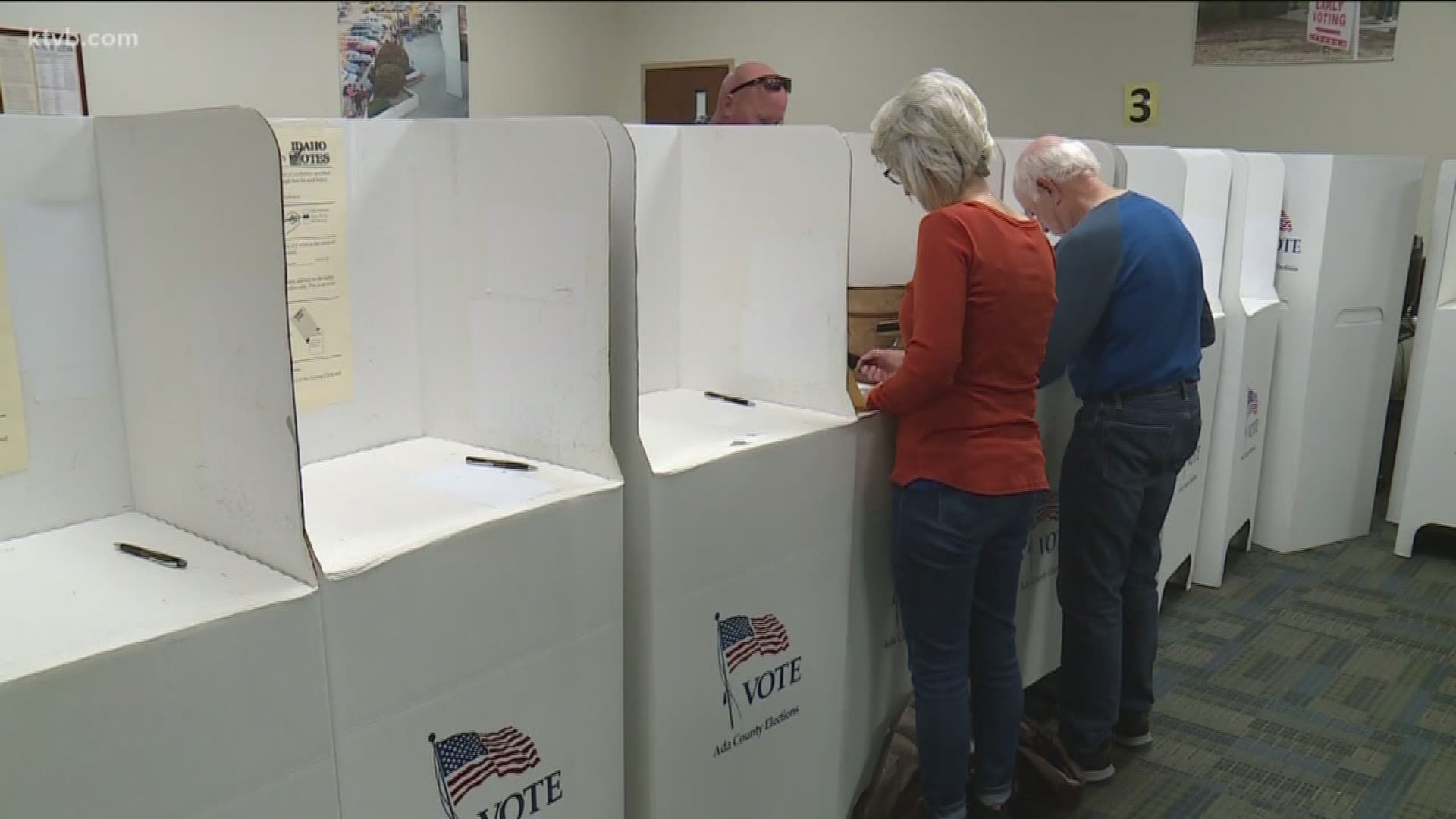BOISE, Idaho — Voters in 14 states are weighing in on the race for the White House on this "Super Tuesday." Idaho's turn is one week away - Tuesday, March 10.
This year, Democrats are joining Republicans, with both parties holding presidential primaries. The Democrats made the switch this year from holding caucuses as a way to pick a candidate.
Breaking new ground with the Democratic presidential primary presents challenges for county election officials.
The Ada County elections office wants to make sure people aren't dealing with long lines. They need to make sure polling places have enough ballots, volunteers, supplies and so on. However, they have no historical data to accurately predict what turnout could be like at each of their precincts.
“We're preparing for a great turnout next Tuesday,” Ada County Clerk Phil McGrane said. “We know there is a lot of interest in the presidential election.”
One thing election officials want voters to be prepared for is the process to determine which ballot they will get. Three parties are holding primaries on March 10: Republicans, Democrats, and the Constitution Party.
“There will be partisan questions asked upfront to determine which ballot you get to vote on,” McGrane said.
In order to vote in the Republican Primary, a voter must be a registered Republican. The Constitution presidential primary is open to registered Constitutionalists and unaffiliated voters. The same goes for the Democratic presidential primary.
Once the partisan questions are answered, voters will receive their ballot. The Republican party has six candidates, including incumbent President Donald Trump. There are 17 candidates on the Democratic ballot, and the Constitution Party has six.
“One thing that people may be surprised to see, there are candidates who have bowed out of the races in the past couple weeks,” McGrane said. “Those candidates’ names will still appear on the ballot.”
That means voters who get the Democrat ballot will see names like Pete Buttigieg, Amy Klobuchar, and Michael Bennet, just to name a few. All those candidates have withdrawn from the race, or suspended their campaigns.
“There is a huge logistics operation behind the scenes,” McGrane said. “It's basically planning an event for 250,000 people so you can imagine there are a few things that have to be ready in advance.”
In order to prepare for this big event, Ada County is looking at past elections. McGrane told KTVB they’re looking at numbers from the 2018 Democratic gubernatorial primary to prep.
“We had almost 300% turnout from what it had been four years before that,” he said. “We're learning from that.”
In addition to voting for presidential candidates, many Idaho voters will also see funding requests from local school districts on their ballots. See our county-by-county school levy voter guide here.
Early voting is available in Ada and Canyon counties from 8 a.m. to 5 p.m. daily through Friday, March 6. In Ada County, you can vote early at the Ada County Elections Office, Boise City Hall and Meridian City Hall. In Canyon County, early voting is available at the Canyon County Elections Office.
Election officials are encouraging people to vote early because of the possibility of a big turnout on election day.
“It's going to be a live moving scenario throughout the day for all these clerks and all these counties,” Chief Deputy Secretary of State Chad Houck said. “As they try and predict how many ballots do they need, what’s the participation level going to be like.”
The state will award 25 delegates for the Democratic primary. Houck told KTVB the delegates will be divided among candidates who receive at least 15% of the vote.
Meanwhile, the state is awarding 32 delegates for the Republican primary, which will go to the candidate who receives more than 50% of the vote.
“That will prepare everything for what happens in November,” McGrane said.

